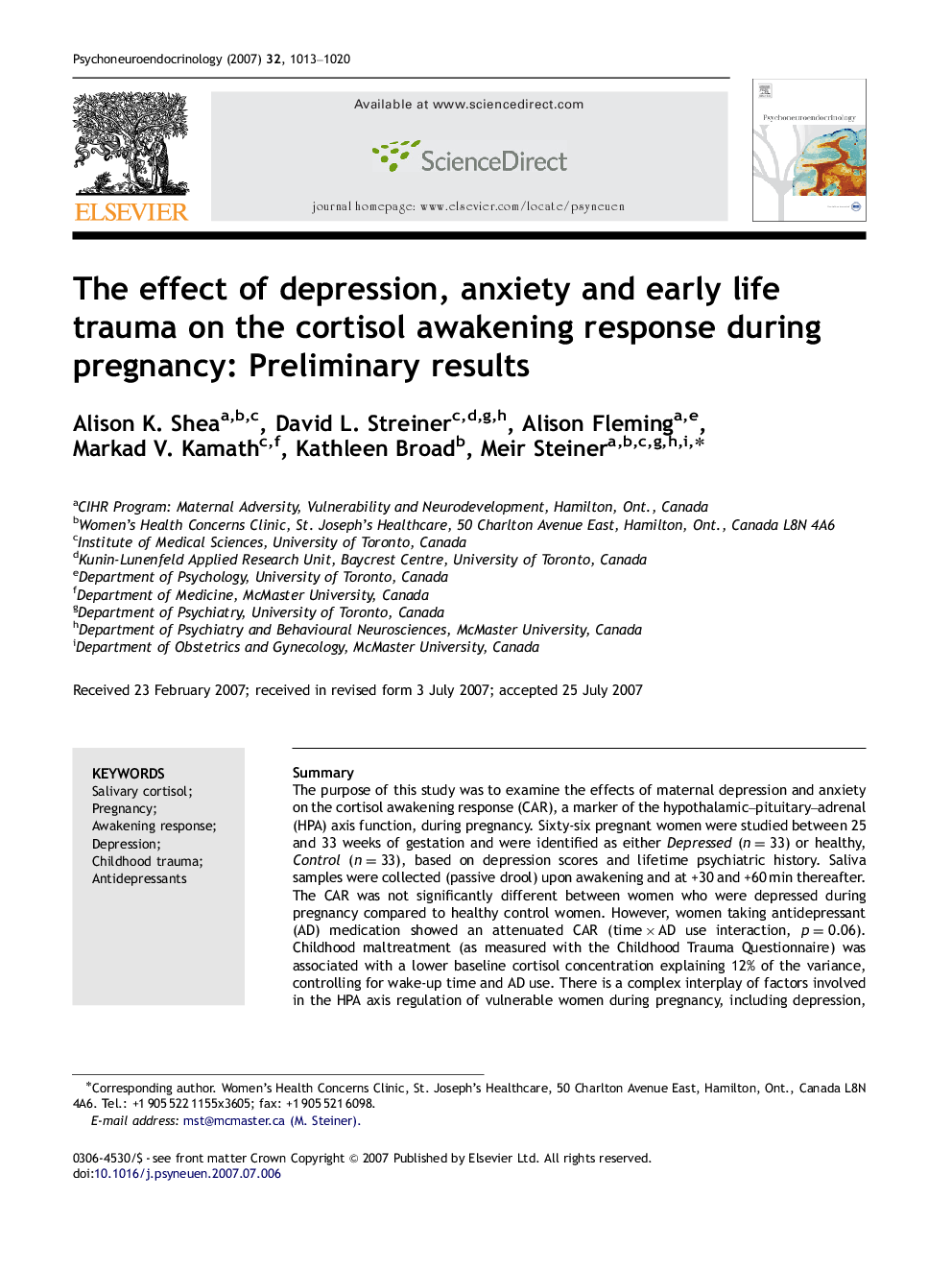| Article ID | Journal | Published Year | Pages | File Type |
|---|---|---|---|---|
| 337142 | Psychoneuroendocrinology | 2007 | 8 Pages |
SummaryThe purpose of this study was to examine the effects of maternal depression and anxiety on the cortisol awakening response (CAR), a marker of the hypothalamic–pituitary–adrenal (HPA) axis function, during pregnancy. Sixty-six pregnant women were studied between 25 and 33 weeks of gestation and were identified as either Depressed (n=33) or healthy, Control (n=33), based on depression scores and lifetime psychiatric history. Saliva samples were collected (passive drool) upon awakening and at +30 and +60 min thereafter. The CAR was not significantly different between women who were depressed during pregnancy compared to healthy control women. However, women taking antidepressant (AD) medication showed an attenuated CAR (time×AD use interaction, p=0.06). Childhood maltreatment (as measured with the Childhood Trauma Questionnaire) was associated with a lower baseline cortisol concentration explaining 12% of the variance, controlling for wake-up time and AD use. There is a complex interplay of factors involved in the HPA axis regulation of vulnerable women during pregnancy, including depression, anxiety, early life stress and psychotropic medication use, which remain unclear. The CAR may provide important information about the maternal HPA axis during pregnancy and warrants further investigation in larger cohorts.
